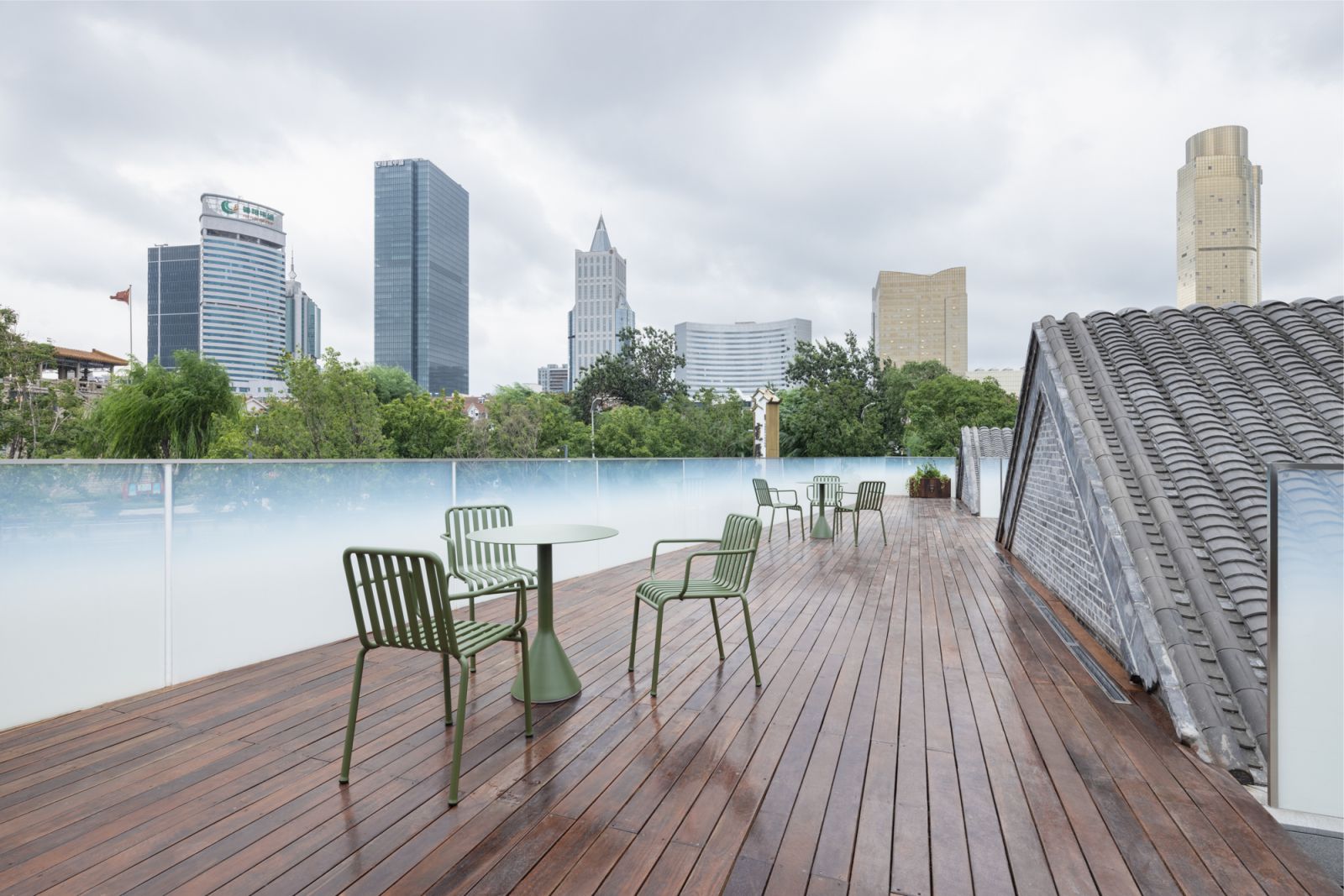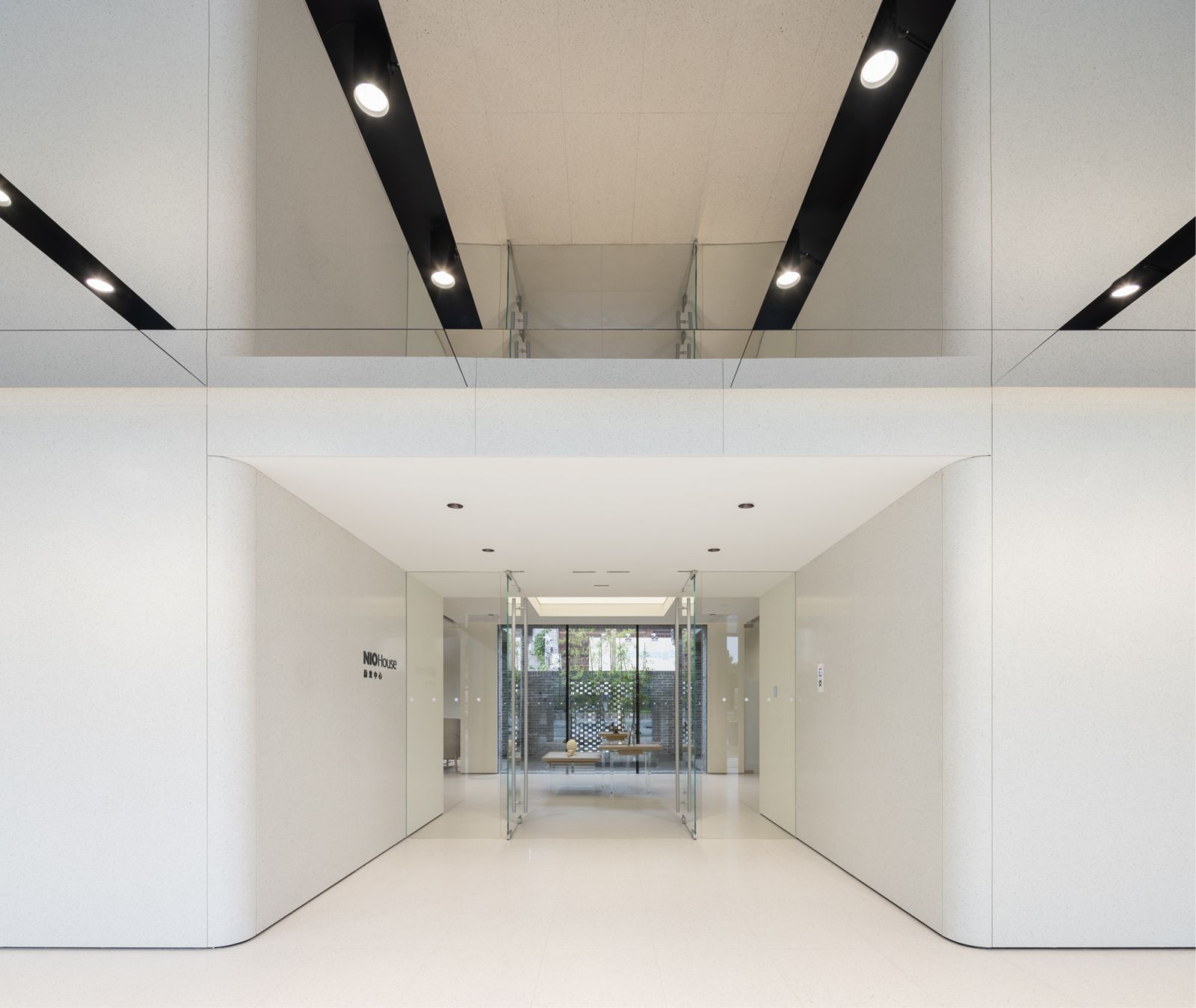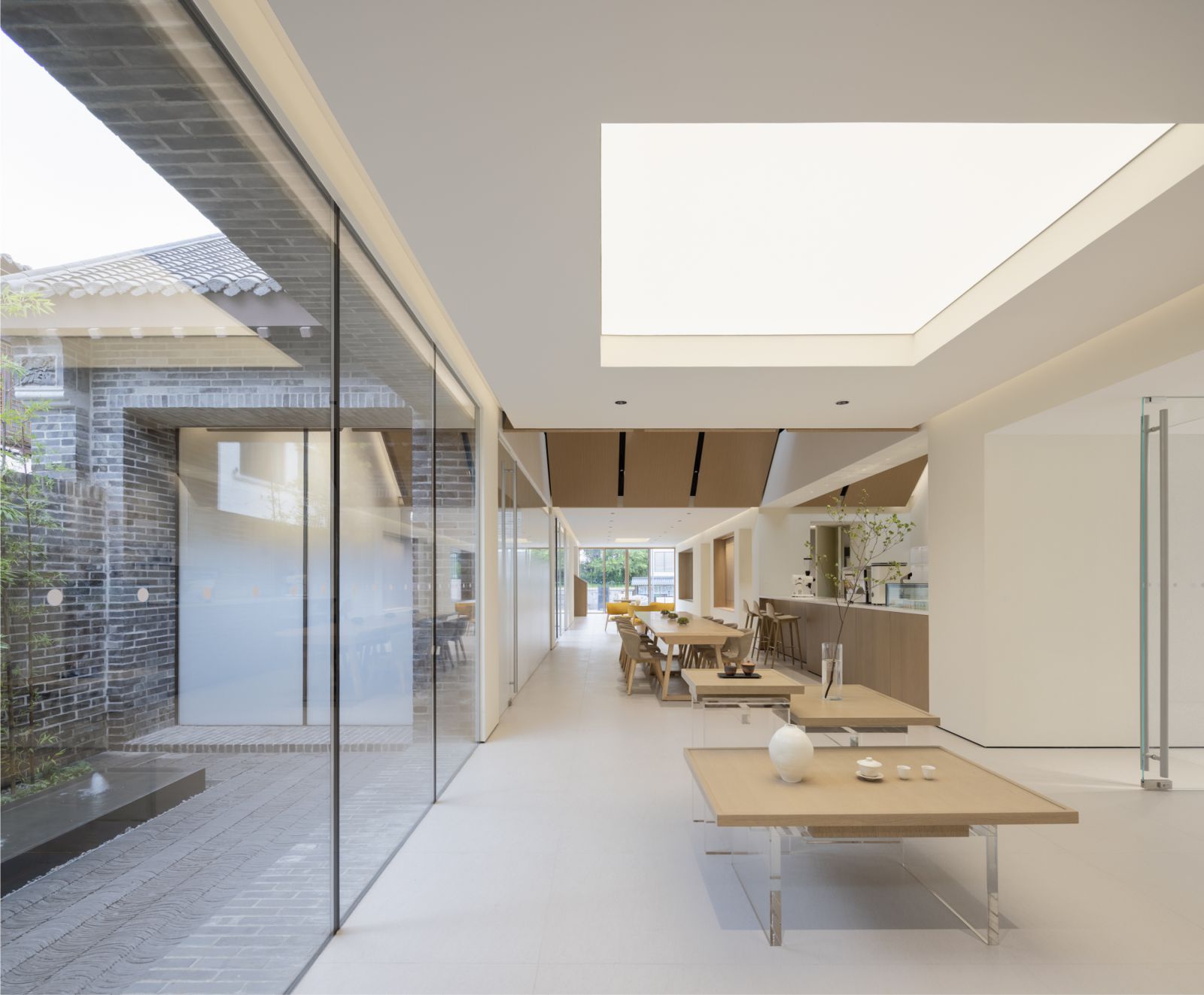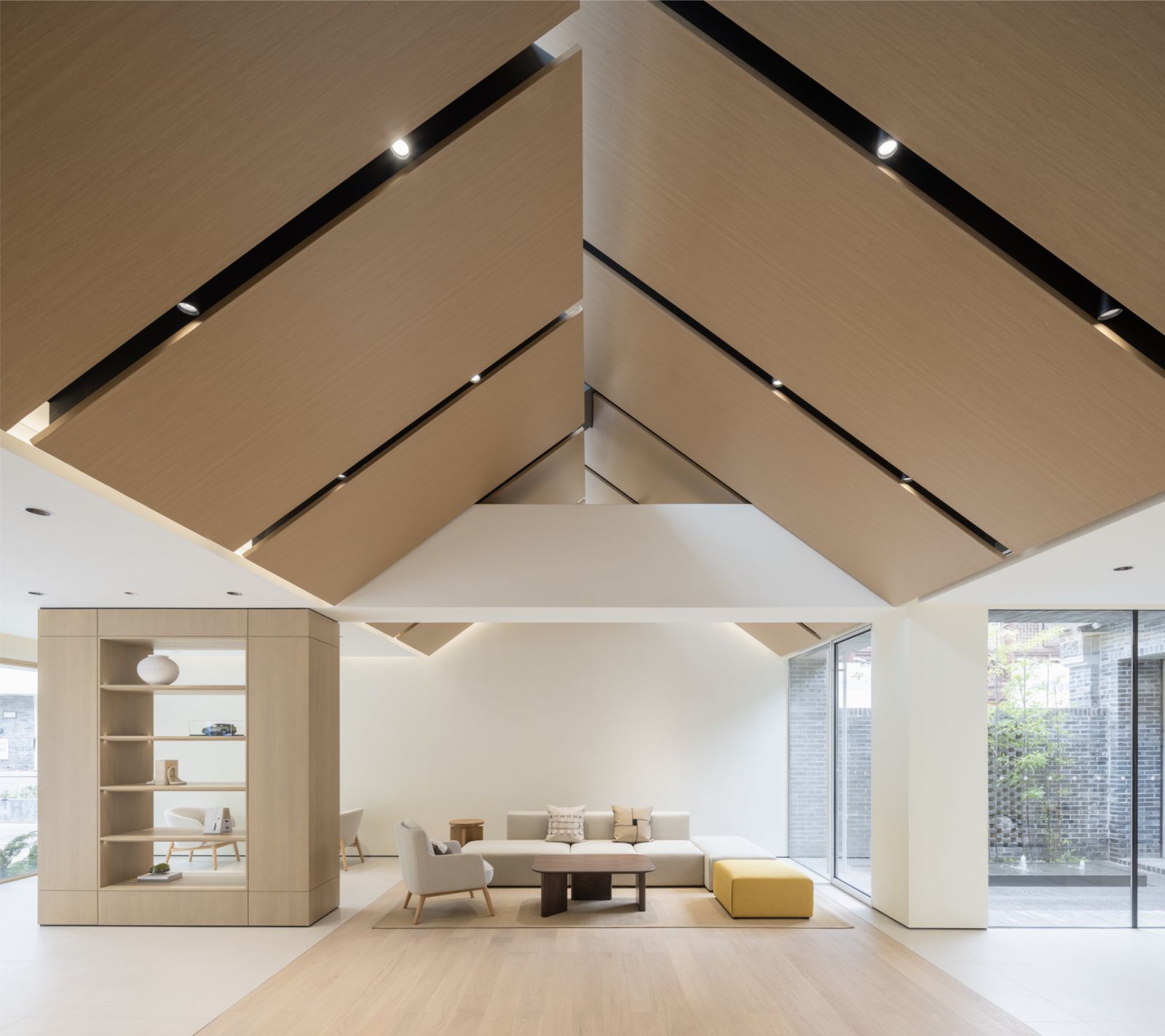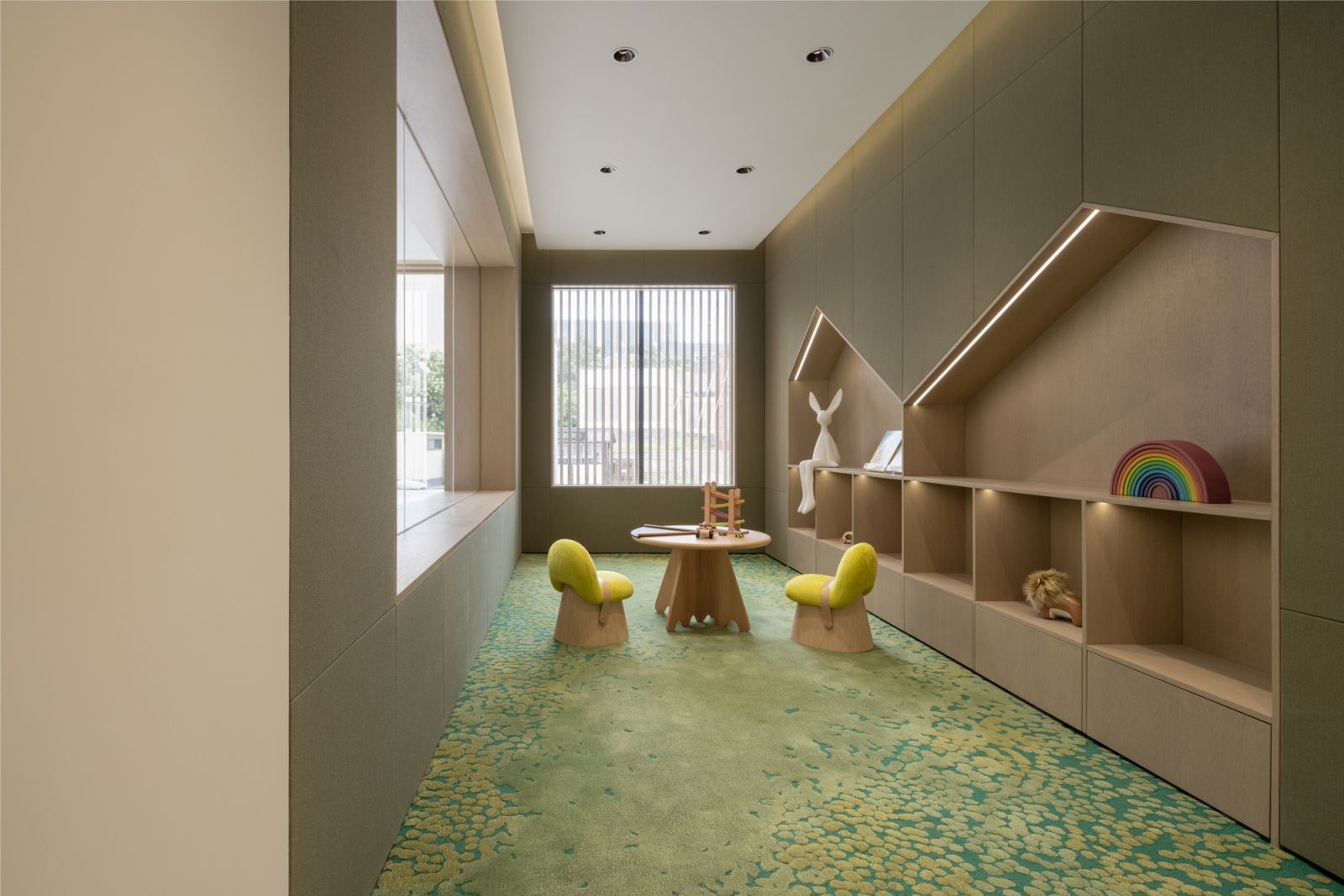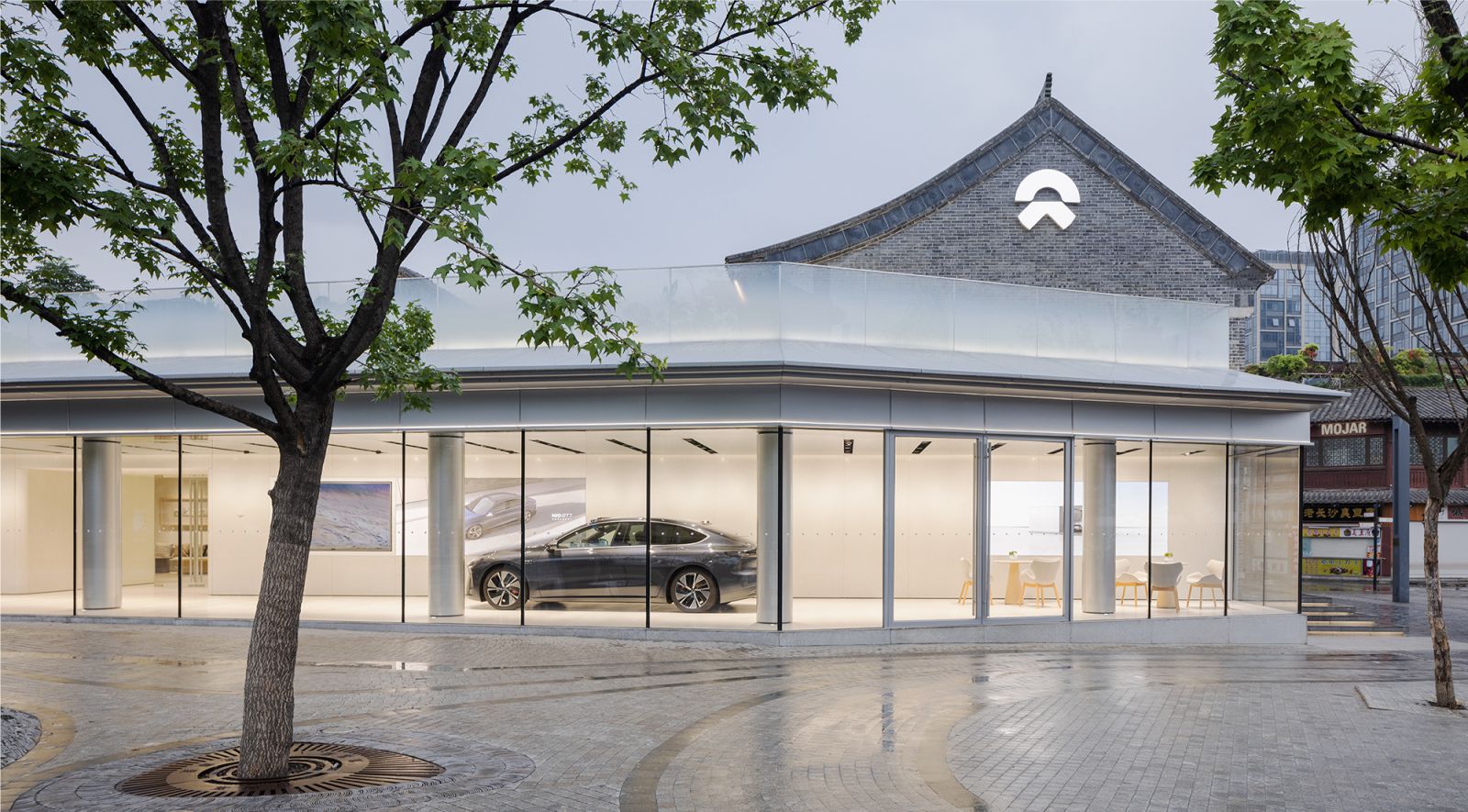With its recent European launch, NIO is steadily entering the international electric vehicle market as a new player. Back in China, the brand has been a market leader and the public is familiar with the sleek NIO House and community concept.
The development of user experience therefore seeks to connect more to the local culture, giving rise to site-specfic design. After collaborating on the NIO House in Nanchang, Lukstudio is given an opportunity to transform a standalone courtyard house in Jinan, the capital of Shandong Province.

Located at Kuan Hou Li Plaza near Black Tiger Spring, the double-height building was originally built in 2015 as an exhibition space with three pitched roofs and two inner courtyards. It was then changed into a commercial store where the outdoor courtyards were given up for more interior space.
Lukstudio has restored the architectural order and integrated a contemporary open plan. The “new’ modern program juxtaposes the “old” gray-brick-concrete-tile architecture, creating a sense of progress and harmony. The two-part architecture helps divide the car showroom and the users’ area.

Facing the main street, the floor-to-ceiling curtain wall showcases an unobstructed view of the high-tech showroom to passers-by. The aluminum eave protruded out in layers, a modern interpretation of the traditional Dougong system.
Tucked behind the futuristic showroom, the users’ zone greets every exclusive guest at the entrance with a calming courtyard view. Restored with old bricks and paved with clay tiles in traditional ripple pattern, the small pocket of nature is finished with a simple stone slab fountain, a subtle tribute to Jinan as the “City of Springs”.
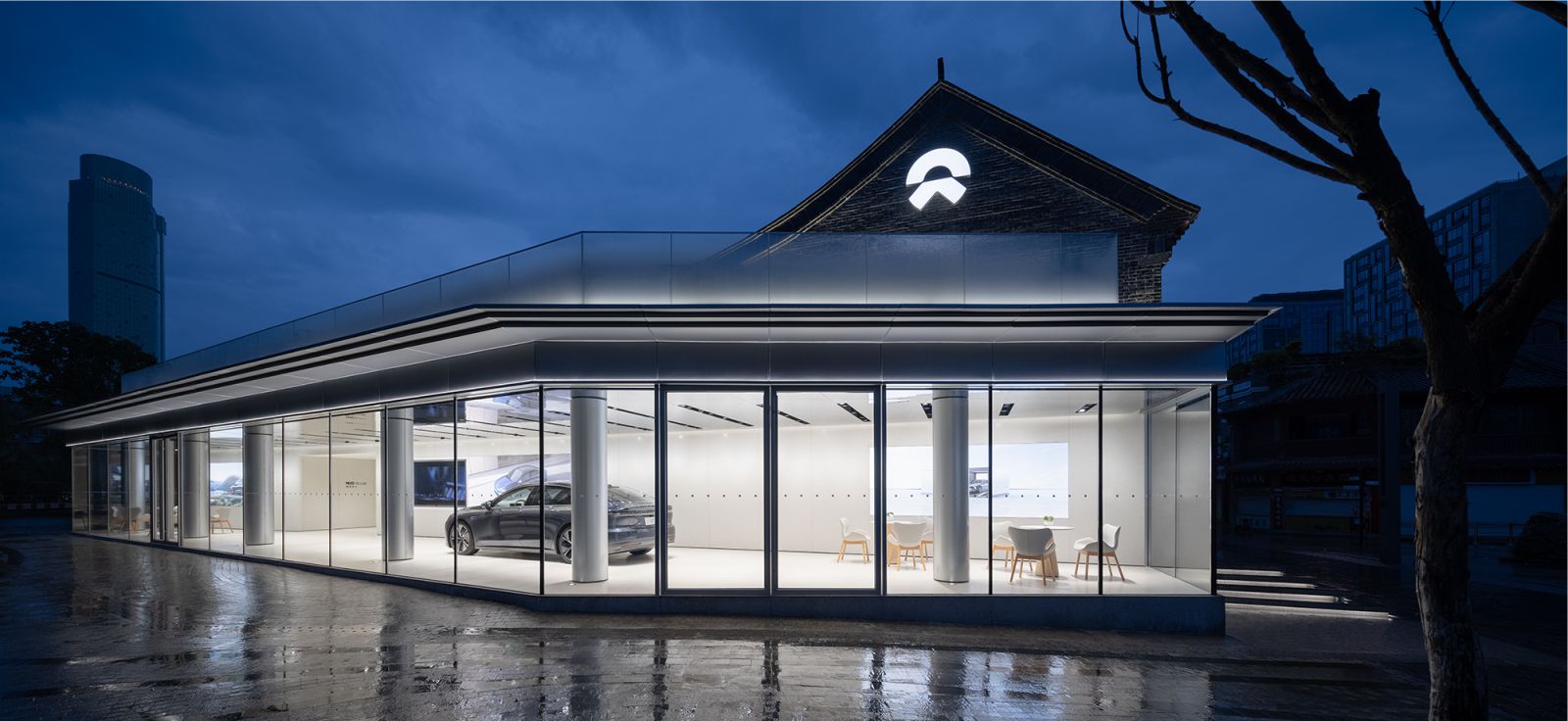
Under the three pitch roofs, the existing concrete post-and-beam structure sets the spatial rhythm of the users’ area which spans along the north-south axis, giving a clear sightline from one end to the other.
An array of wooden panels forms the sloped ceiling, creating a lightness that contrasts with the heavy concrete structure, also a functional design for integrating track-lights and air grills.
The wooden panels stagger at the apex like the Chinese character 人meaning people , letting daylight travel down from a newly-inserted skylight. The NIO Café is at the center of the users’ area, with the multi-purpose hall on the south and the staircase to second floor and terrace on the north.
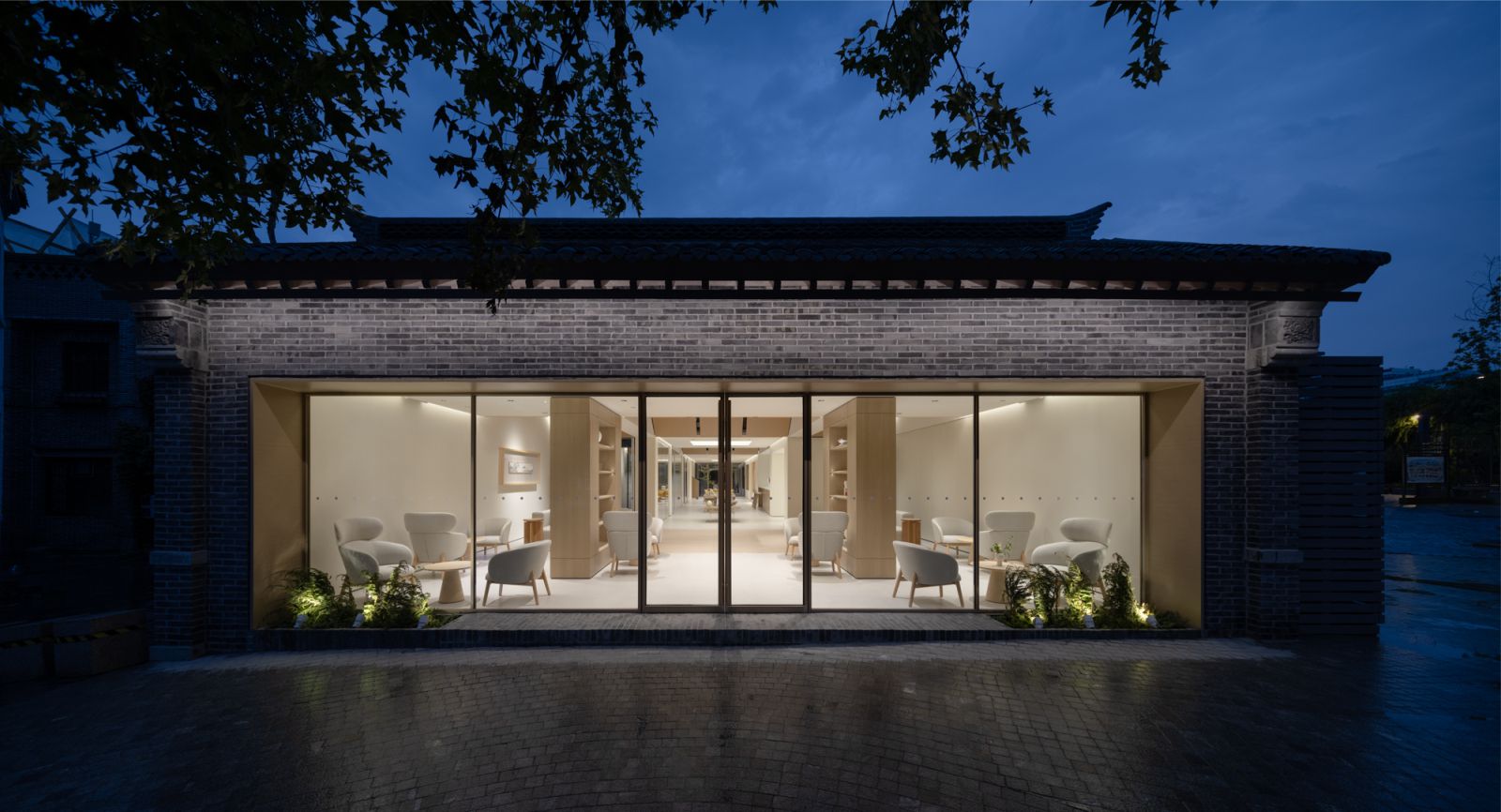
Apart from the wooden ceiling panels, other elements such as the stairwell, the café counter, the display shelving all appear to be individual wooden blocks inserted into the building, together balancing the minimal white gallery with warmth and texture.
Sitting on transparent acrylic bases connected by mortise and tenon joints, wooden display trays echo the sense of lightness and modernity. The previous flat rooftop has been reinforced and transformed into an outdoor terrace for leisure.
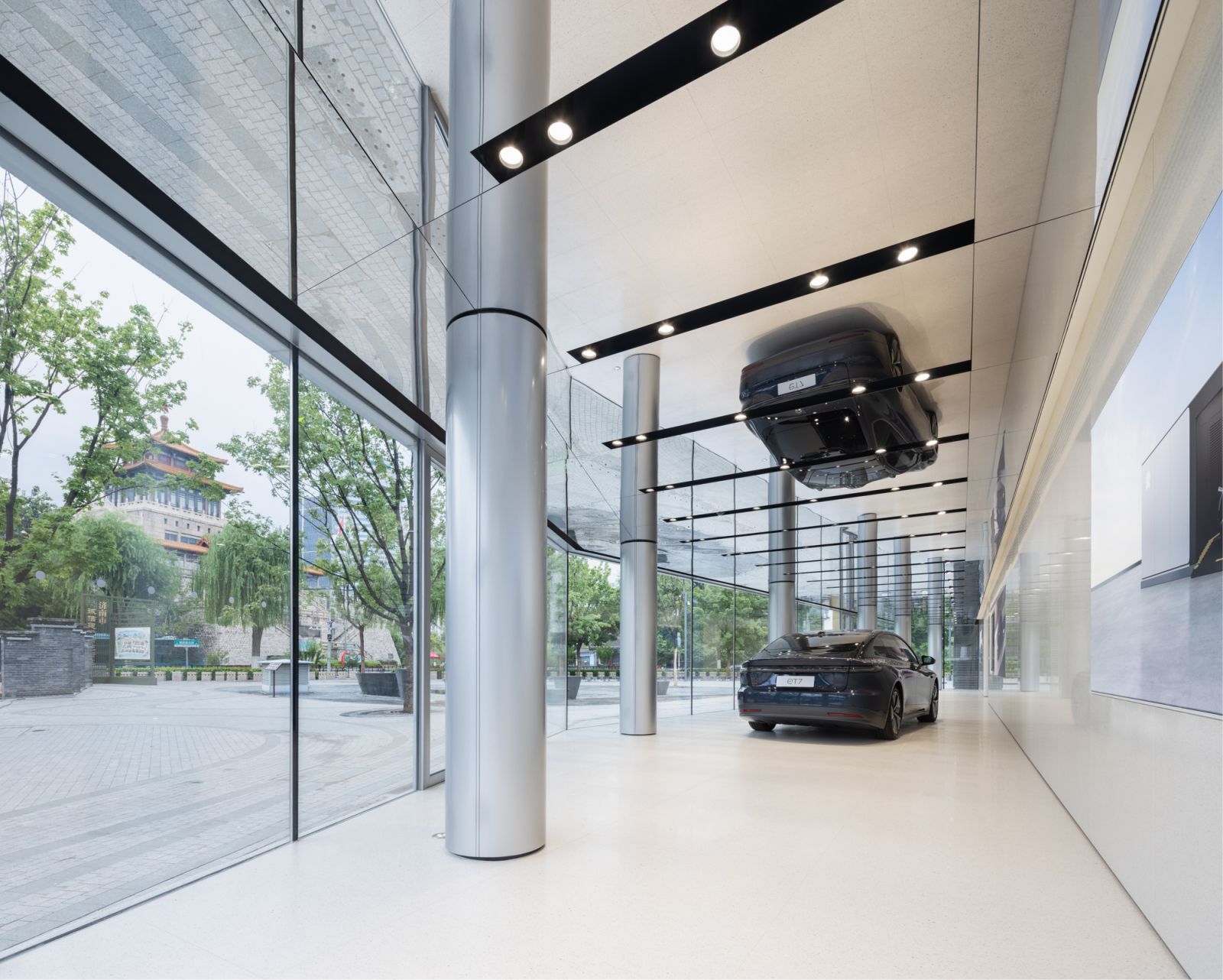
The railing is in glass with white gradient, an ephemeral design language used throughout the project for privacy, softly defines the edge and adds a mist-like poetic quality to the building façade.
Overlooking the skyline of tall towers, while counting clay tiles on the traditional roofs, electric car drivers visiting NIO House Jinan are invited to go on a journey of time and dream about the future. Source by LUKSTUDIO.

- Location: No.3 West Heihuquan Road, Lixia District, Jinan City, Shandong Province, China
- Architect: LUKSTUDIO
- Director: Christina Luk
- Design Team: Yicheng Zhang, Haixin Wang, Vivi Du, Rebecca Tan, Coca Gao
- Lighting Consultant: SHUMUNG lighting design
- Drawing Development: Hong Sheng Architectural & Design (Shanghai) Co.
- Furniture Products: GRADO, HAY, JOYSLIVING, JIANGFENG, TIWU, ZIINLIFE
- Client: NIO
- Net Area: 730 m2
- Construction Period: 2022.03 – 2022.07
- Photographs: Wen Studio, Courtesy of LUKSTUDIO


